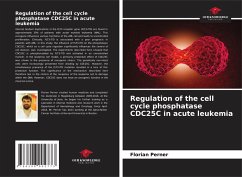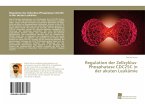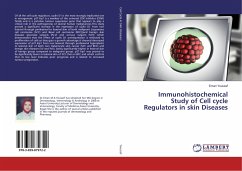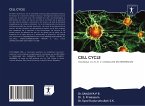Internal tandem duplications in the FLT3 receptor gene (FLT3-ITD) are found in approximately 30% of patients with acute myeloid leukemia (AML). This oncogene influences various functions of the AML cell and leads to uncontrolled proliferation. Clinically, FLT3-ITD is associated with a poor prognosis in patients with AML. In this study, the influence of FLT3-ITD on the phosphatase CDC25C, which as a cell cycle regulator significantly influences the control of cell division, was investigated. The experiments described here showed that CDC25C is phosphorylated by FLT3-ITD and activated in an uncontrolled manner. In the leukemia cell model, a primarily protective effect of CDC25C was shown in the presence of oncogenic stress. The genetically non-intact cells were increasingly prevented from dividing by CDC25C. However, the simultaneous presence of the FLT3-ITD mutation resulted in a loss of this protective function. The significance of the mechanism described here therefore lies in the control of the response of the leukemia cell to damage within the DNA. However, CDC25C does not have an oncogenic function in the classical sense.
Bitte wählen Sie Ihr Anliegen aus.
Rechnungen
Retourenschein anfordern
Bestellstatus
Storno








